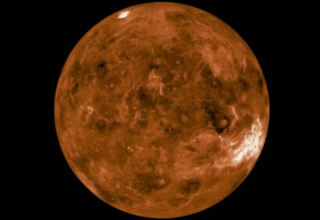What’s the deal with hiccups? Experts explain what they are and how to stop them
Written content from Madeline Holcombe

It’s cute when your sleeping puppy does it. It’s not so cute when you are having a serious conversation with a friend post-feast and you just can’t stop.
It’s the hiccups.
Along with “Covid-19,” “vaccinations” and “helping one another,” “hiccups” appeared as one of the most searched terms on Google for 2021. That may come as a surprise. Everyone gets them — why all the questions?
For all the medical and scientific advancements humanity has made over the years, there is still a lot we don’t know about hiccups. The irony of that struck Dr. Ali Seifi, a neuro intensivist, while checking up on a patient who was recovering from surgery for brain trauma. The patient had been gulping down water to cure the case of hiccups that had come on in his hospital room.
“He turned to me and said, ‘Doctor, this is the 21st century. You guys have treatments for cancer, for strokes, for heart attacks, but not such a simple thing as hiccups?’” said Seifi, director of the Neuro-ICU and an associate professor in the department of neurosurgery at the University of Texas Health Science Center at San Antonio.
Seifi has developed a simple tool called HiccAway — a plastic straw-like tube that increases pressure to lower the diaphragm when you drink — that he said is effective for stopping hiccups in most circumstances. But there is still much the public and the medical community don’t understand about the common occurrence, he added.
What are hiccups?
To understand hiccups, you have to know about the diaphragm, the major muscle that controls breathing, which sits just below the lungs and near the stomach. When you breathe in, the diaphragm contracts and your chest expands.
Hiccups are sudden spasms of that muscle, Seifi said, and they send a message to your brain to close a flap in your throat again and again — hence the “hic” sound.
The “up” comes from the release of the pressure when the flap opens up, said Dr. Mark Fox, a professor of gastroenterology at the University of Zurich in Switzerland.
What causes hiccups?
The answer to the question of what causes them is perhaps disappointing: We often don’t know.
They can be sparked by many everyday things, including spicy food, alcohol, carbonated beverages, eating too fast, eating a large meal or acid reflux, Seifi said.
Take spicy food, for example: It can irritate the stomach chemically, and — since the stomach is so close to the diaphragm — that can stimulate the muscle to spasm, which alerts the brain to hiccup, Seifi said.

The irritation impacts the nerves that connect the brain to the gut, Fox said.
And the purpose of the hiccup? There is really only educated guesses there, too, Seifi said. Some scientists theorize that there was a point in evolution where life moved from water to land, and those organisms needed something to prevent water from going into their lungs, he added.
Who gets hiccups?
Everyone gets them, Seifi said.
Children, teens, adults and dogs get hiccups. There is even a belief in the scientific community that all mammals get them, Seifi said.
They are more common in younger humans, said Fox. In fact, hiccups can be extremely common in babies in the womb — which is interesting, because they aren’t using their lungs yet, Fox said.
“The reason that I think most people think the hiccups occur (in the uterus) is that it is actually training the respiratory muscles in the womb … because you do need to breathe just as soon as you’re born. By repeatedly contracting and relaxing the diaphragm and the (other) breathing muscles, it trains the baby,” Fox said.
But as humans get older, there is no clear pattern to who gets hiccups more often.
“That’s the million-dollar question,” Seifi said. “Nobody knows why some people get more hiccups.”
It could have to do with the variance in human bodies, he added. One person might have a diaphragm more attached to their stomach than another, and therefore their stomach irritation is more likely to result in hiccups. Read more from NBC2
Subscribe here

The following written content by Jessica Migala
What causes hiccups
Experts aren’t totally sure they know all the reasons why hiccups happen, says Dr. Boozer. In general, things that irritate the diaphragm or the nerves that connect to the diaphragm (called the phrenic and vagus nerves), can lead to hiccups. Those include eating or drinking too fast, sipping carbonated beverages or alcohol, and being stressed out or really excited.
Certain medical conditions, such as acid reflux, can be a trigger, and hiccups could be a side effect of certain medications, she says. One of the most well-known hiccup-causing meds are benzodiazepines, which are used to treat anxiety.
How to get rid of hiccups
Most of the time, hiccups will go away within several minutes, says Dr. Boozer. So typically, you don’t have to do anything to make them disappear except wait. “Sometimes, ignoring hiccups is the best thing you can do,” she says. “They usually don’t last very long and typically go away on their own.”
However, let’s say you have a Zoom presentation to give in five minutes, and you’d rather not hiccup between every sentence in front of your colleagues. What can you do to nip them in the bud? Home remedies include:
- Taking deep, slow breaths
- Drinking water or ice water
- Gargling
- Letting someone or something scare you
- Biting into a lemon
- Holding your breath for 5-10 seconds
- Pulling on your tongue
- Blowing up a balloon
- Breathing into a paper bag
- Sitting down and pulling your knees to your chest for one minute
- Putting a cold compress on your face
You might also try the valsava maneuver, says Dr. McKnight. To do it, pinch your nose and hold your breath, then force yourself to exhale and bear down as if you’re going to poop. Hold for about 10 seconds. This might be one you want to attempt if you’re at home by yourself versus in public, though.
Unfortunately, experts say that none of these “cures” emerge as the winning remedy. But the good news is, they might get rid of your hiccups, and most are safe to try, says Dr. McKnight.
While these remedies sound rather random, they all tap into a couple of mechanisms, says Dr. Boozer. They either disrupt the pattern of diaphragm spasms (such as holding your breath) or irritate the phrenic or vagus nerves to disrupt the nerve impulse (such as putting a cold compress on your face or gargling). Read more from Health.




